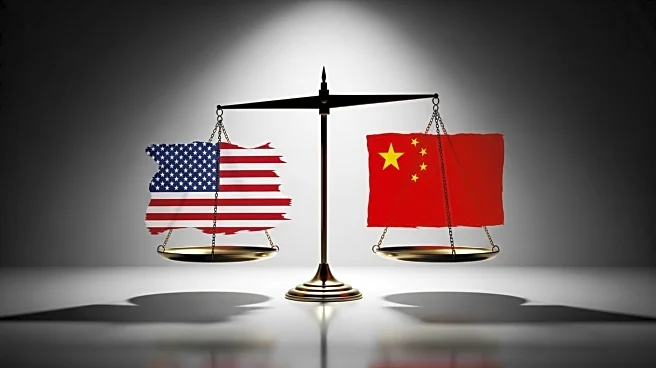What's Happening?
President Trump has announced plans to impose an additional 100% tariff on Chinese goods starting November 1, following China's decision to tighten control over rare earth exports. These minerals are crucial for the production of electronics, automobiles, and semiconductors. The move comes after the US introduced its own export controls targeting China in late September, despite earlier progress in trade talks. The new tariffs would raise total duties on imports from China to around 130%, nearly reaching the peak levels seen during the height of the trade war earlier this year. This announcement has led to significant declines in major stock markets across the Asia Pacific region, with indices in Hong Kong, Shanghai, South Korea, and Taiwan experiencing notable drops.
Why It's Important?
The escalation in trade tensions between the US and China could have far-reaching impacts on global industries, particularly in technology and automotive sectors that rely heavily on rare earth minerals. East Asian economies, including Japan, South Korea, and Taiwan, which are integral to the global tech and AI supply chains, may face substantial disruptions. The potential trade war could also affect US markets, as evidenced by recent declines in the S&P 500, Nasdaq, and Dow. The situation underscores the fragility of international trade relations and the potential for economic instability if negotiations fail to resolve the underlying issues.
What's Next?
China has vowed to implement countermeasures if President Trump proceeds with the tariff increase, indicating a willingness to engage in further negotiations. The US administration has shown some openness to dialogue, with President Trump expressing a desire to assist China rather than harm it. Vice President JD Vance has urged China to choose a path of reason, emphasizing the US's strategic advantages. The outcome of these tensions will depend on the responses from both nations, with potential implications for global trade dynamics and economic stability.
Beyond the Headlines
The trade tensions highlight the strategic importance of rare earth minerals in modern technology and the geopolitical leverage they provide. China's control over these resources poses a challenge to US and global industries, potentially prompting efforts to diversify supply chains and reduce dependency. The situation also raises ethical and legal questions about trade practices and the balance between national interests and global cooperation.












